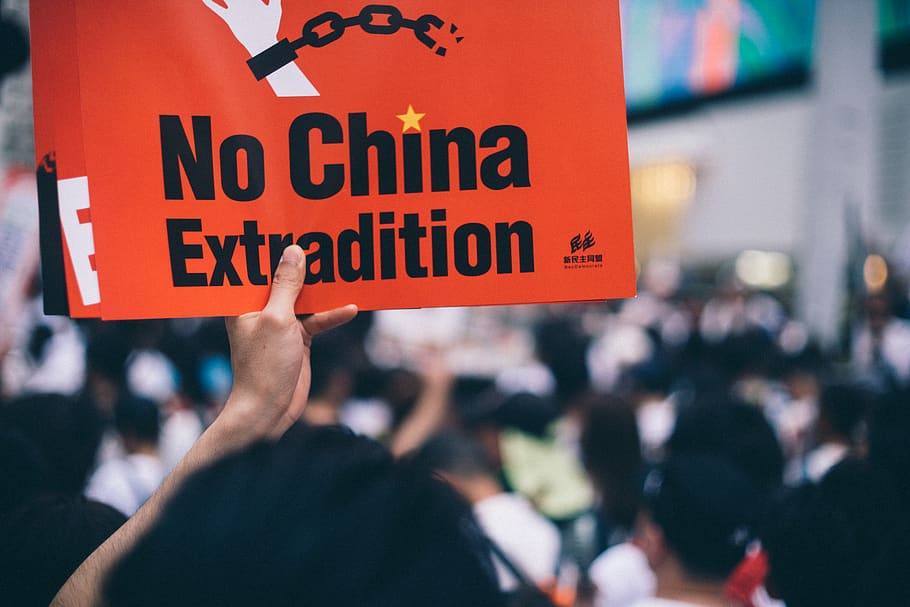Joe Biden has guaranteed a “deferral of removal” of up to 18 months for Hong Kong residents currently in the United States.
This is the latest in a series of moves, as tensions continue to simmer between the US and China over the treatment of Hong Kongers and Uighur Muslims, and over foreign policy and trade..
“Over the last year, the PRC has continued its assault on Hong Kong’s autonomy, undermining its remaining democratic processes and institutions, imposing limits on academic freedom, and cracking down on freedom of the press,” Biden wrote in a memo.
The White House said the measure made clear that the United States “will not stand idly by as the PRC breaks its promises to Hong Kong and to the international community.”
Beijing agreed to allow Hong Kong significant political autonomy for 50 years after its handover from the British in 1997.
Events since 2019 have contravened this agreement. In a new National Security Law passed in June 2020, Beijing criminalised subversion, secessionism, terrorism, or collusion with foreign forces.
In practice, laws banning undefined abstract nouns enable the policing of the slightest suspicion, leading to arbitrary or even secret detention. 10,250 Hong Kong residents have been arrested as of May 2021. Anonymous informers hotlines have been established for national security concerns.
Related Articles: Assessing China: For Worse or Better | The Extradition Bill: The Beginning of the End for Hong Kong? | How to Navigate the US-China Trade War
The White House Press Secretary Jen Psaki told the press:
“This step is one that is meant to ensure that we are practicing what we preach in terms of human rights values, and ensuring that people who are in this country don’t face the ongoing repression that we’re seeing in Hong Kong.”
China has bristled at this moral high ground; an unidentified spokesperson from the foreign ministry said the US was “weaving lies and slandering Hong Kong’s national security laws, blatantly beautifying the anti-China chaos in Hong Kong, and presumptuously offering the so-called safe haven.”
The safe haven is granted to Hong Kongers under the Deferred Enforced Departure (DED) program. This program does not offer a pathway to citizenship, but may be renewed indefinitely by a president. The strange combination of words “Deferred Enforced” conveys some of the strained temporariness of this program, which leaves its members in-between with an insecure future, “enforced departure” still promising itself.
Hong Kongers who are afraid to return to their home, or who feel as if it has been changed irreparably by their government, still find themselves the vulnerable subjects to a large power.
Reuters reported that Republican Senator Ben Sasse called the safe haven move a “solid step,” but said the government should offer full asylum to Hong Kongers rather than just deferring deportation.
In 2020 the UK offered visas and “a pathway to citizenship” to residents of Hong Kong. This scheme has been very popular, with over 500,000 emigrants expected to arrive over its first three years.
Biden’s memo is likely to inflame relations between the US and China further. But if the US is serious about practicing what it preaches in terms of human rights, it should offer a secure future to Hong Kongers, who have experienced such upheaval in the past two years.
Editor’s Note: The opinions expressed here by Impakter.com columnists are their own, not those of Impakter.com. — In the Featured Photo: A protestor holds up a sign protesting the Extradition Bill, a Chinese Bill enabling Hong Kong residents to be extradited and judged by mainland law. Featured Photo Credit: Piqsels.










